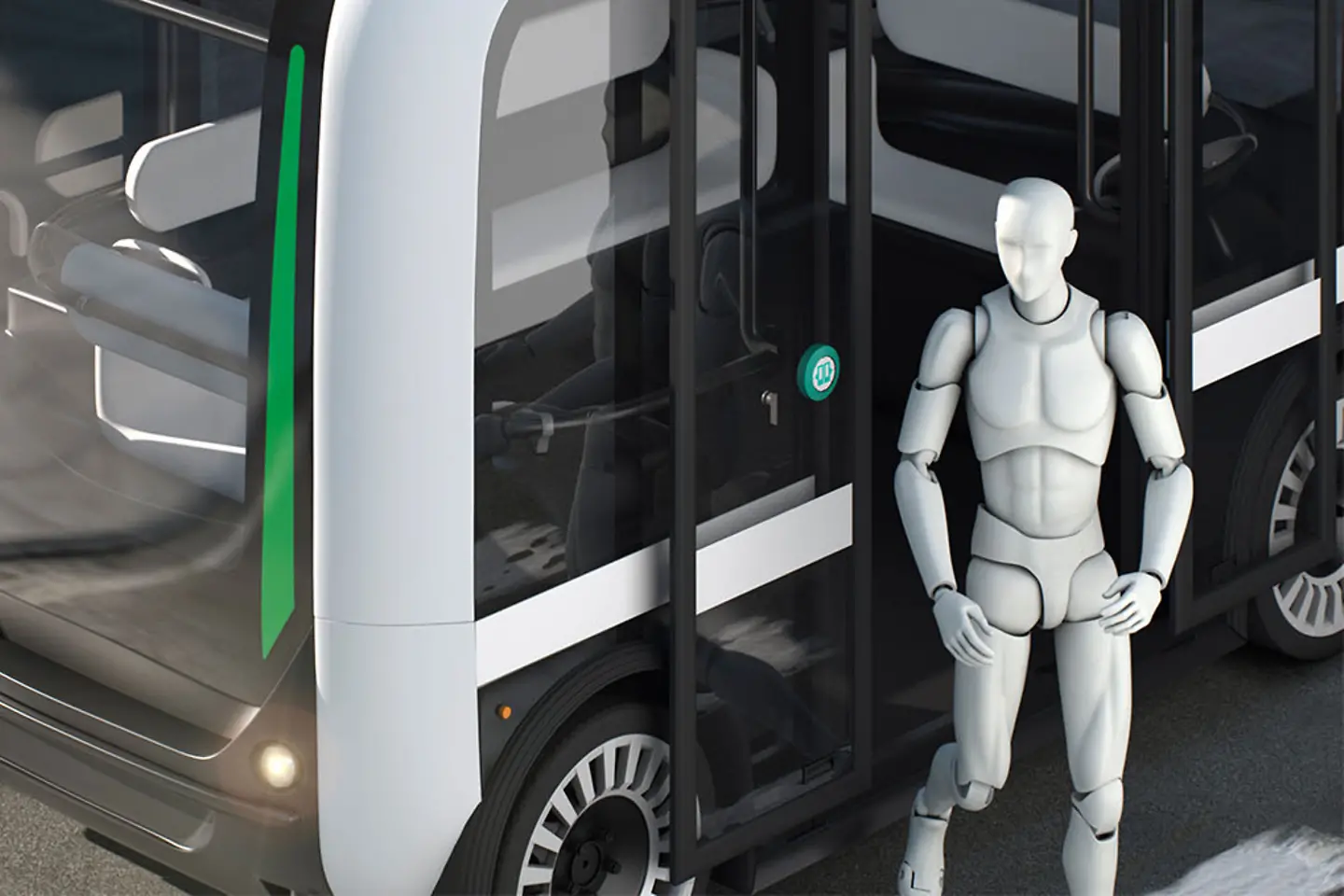
Environmental protection issues, such as the government’s climate goals and the 9-euro ticket, have put the spotlight back on local public transport for many travelers. It has also shown room for improvement. The authorities of the Rhein-Main-Verkehrsverbund (RMV) are thinking about how to make mobility more flexible and customer-oriented and to make stronger intermodal connections.
In concrete terms, the RMV wants to test out a shuttle service on the outskirts of the tariff zone. This will involve the use of self-driving minibuses for six to eight passengers on routes where the number of passengers makes the use of a conventional bus economically nonviable. Autonomous transportation saves money on the costs of a driver.
As the operator of this on-demand mobility service, the RMV also holds the responsibility for monitoring passenger transport – just like other forms of transport. While driving staff assume this role on buses and trains, this challenge requires another solution when it comes to autonomous transportation. The RMV is testing a digital solution for this in the form of a proof of concept that was launched in November 2022. Its daughter company, the Rhein-Main-Verkehrsverbund Servicegesellschaft mbH, is working on this with T-Systems.

Serving main traffic arteries in cities and metropolitan regions is just one side of public transport. The other side includes rural areas with weak infrastructure where passenger numbers are often low – meaning that transport frequency is also low. But large transportation authorities also need to consider how regions and zones with low passenger numbers can be economically and efficiently connected with the transport network. Transportation authorities are developing an increasing number of “on-demand” offerings like dial-a-buses and shared taxis for this reason.
With the advent of the first autonomous buses, the topic has gained new momentum. But do autonomous buses actually form a basis to operate these routes economically? And how can the Rhein-Main-Verkehrsverbund (RMV or Rhine/Main Regional Transport Association), as the responsible party, control operations sufficiently, fulfill its duty of care, and guarantee transport security? And how can this be achieved in line with legal regulations? As the RMV must also comply with the applicable data protection laws.
Computervision, the solution from T-Systems, allows us to test autonomous on-demand mobility and helps us to give our passengers a feeling of security.
Thorsten Möginger, Team Leader New Mobility, Rhein-Main-Verkehrsverbund
In November 2022, the RMV launched its pilot project to use autonomous shuttles on its own premises. A solution for person recognition is integrated into this: Computervision. RMV is a customer of Deutsche Telekom Business Services (DTBS), who put them into contact with T-Systems, who made the solution a reality.
It is essentially made up of an AI-based application, which is installed on a high-performance edge device, and can be connected to an onboard camera. This can either be a camera that is already integrated into the bus or one that has been installed specifically for this purpose. The solution also offers GPS tracking. The actual intelligence of the solution lies in the AI-based, pre-trained application. It can scan the passenger area for example. To be more specific, it can be used in four different ways. It recognizes how many people are on the bus, if they are wearing masks or are standing and whether a passenger has forgotten a piece of luggage.
A tablet or screen is integrated into the bus as an add-on. The type of communication with passengers is tailored to customer requirements. It can either be unidirectional or bidirectional. If a passenger is standing up or not wearing a mask, for example, they will receive a corresponding message. The tablet also works as a source of information, in case of unusual traffic situations like congestion or accidents.
The application on board processes object recognition data and transmits these to the customer backend. There is also the option to use the “Open Telekom Cloud” as a backend including a dashboard from T-Systems. The important thing is that the onboard applications record and analyze videos, but images and videos do not get transmitted into the backend. The application only recognizes “three people”. This completely anonymous number is added to the dashboard or database.
With the dashboard, the RMV is able to guarantee security in the shuttle, as well as determine capacity. Based on the data from the six-month proof of concept, the RMV can make business decisions regarding the wider use of the shuttles. At the same time, the RMV is gaining a solution with this that also ensures transport security in autonomous transportation. In this way, it fulfills its legal obligations as a people carrier and does so in compliance with data protection, as personal data is not transmitted.
Every day, the Rhein-Main-Verkehrsverbund transports around 2.5 million passengers. In 2019, they had as many as 808 million passengers. With around 300 cities and communities in the network, the RMV provides transport services for around two-thirds of the state of Hessen. Regional trains, city trains, buses, subways, and streetcars produce over nine billion passenger kilometers per year – this makes the RMV one of the largest transportation authorities in Germany. It provides people in the metropolitan area of Frankfurt and beyond with the option of green mobility.